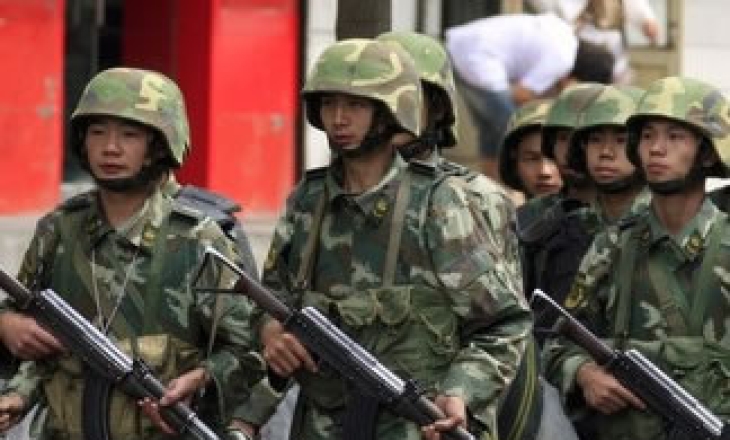Detentions of journalists reporting on ethnic violence in China's Xinjiang region has been continuing, according to press freedom groups.
The Beijing-based Uighur academic and blogger Ilham Tohti, according to the Committee to Protect Journalists (CPJ), has been missing since July 8 when he told a friend he had received a notice of detention. On July 6, Beijing public security officials questioned Tohti, founder of the Uighurbiz website, about recent postings on his site, a Chinese-language information portal and forum about Uighur issues, according to international news reports.
The riots erupted on July 5, sparked by a fight between Uighur and Han factory workers in Guangdong Province on June 26, in which two Uighur people were killed.
Police in Xinjiang detained reporter Heidi Siu, a reporter for Radio Free Asia's Cantonese language service, for two days before deporting her to Hong Kong on Sunday, according to Dan Southerland, a RFA senior editor. Siu, a Canadian citizen whose Chinese name is Siu Chun Yee, was detained on July 10 while she was taking pictures of police moving to arrest Uighurs, according to Southerland. The journalist's arrest was reported after she was allowed to return briefly to the press center in Urumqi under police escort, Southerland told CPJ by email.
In separate incidents on July 10, police in Kashgar detained Associated Press (AP) photographer Elizabeth Dalziel and two Agence France-Presse )AFP) reporters who were not identified. Police expelled them, citing the risk of violence spreading from the capital, Urumqi, according to AFP and the Foreign Correspondents Club of China. In a July 11 statement, the club said at least four foreign journalists had been detained for hours in Urumqi.
"We are concerned that Ilham Tohti has been detained for articles published on his website and ask that Beijing security officials clarify his whereabouts and legal status," said Bob Dietz, CPJ Asia programme coordinator. "Police should also stop detaining and expelling foreign journalists covering the unstable situation in Xinjiang."
“There is widespread concern about the death toll and escalating violence in Xinjiang, particularly as worried families, friends and colleagues are unable to access information about the situation,” Internaitonal Federation of Journalists (IFJ) General Secretary Aidan White said. “Journalists who gain access to the area must be able to enter Urumqi and return to their offices to file their reports without fear for their personal safety.”
Violent rioting between groups of Han Chinese and the Muslim Uighur minority broke out in Urumqi on July 5, possibly in response to reports of violence between the two ethnic groups in a Guangzhou factory, according to international news reports. Authorities in Xinjiang were unusually welcoming toward Chinese and foreign journalists covering the unrest, announcing 184 mostly Han fatalities. Yet the apparent openness was accompanied by a broad shutdown of Internet and mobile phone connections.
Xiao Qiang, director of the University of California Berkeley's China Internet Project told the BBC the riots provoked "probably the most severe online policing I've ever seen" in an interview posted on Berkeley's China Digital Times website. Although authorities have begun to restore Internet access to the city, several websites and online discussion forums remain closed or censored, news reports say.
Xinjiang Governor Nur Bekri had accused Ilham Tohti of using the website to collaborate with exile Uighur groups to orchestrate the violence, according to the Associated Press. Tohti had previously criticised Bekri by name on his website, saying the governor did not care about Uighurs, according to international news reports.
Tohti is an economics professor at the Central Nationalities University in Beijing, the reports said. Some Uighurs had accused Uighurbiz of having links to extremist separatist groups overseas in June, but the Web site had been cleared in an official investigation, according to Radio Free Asia.










